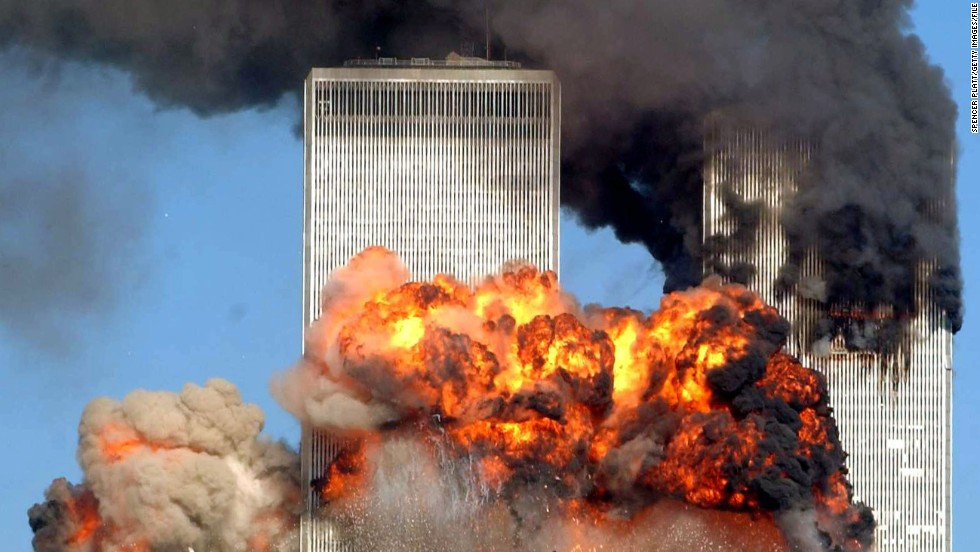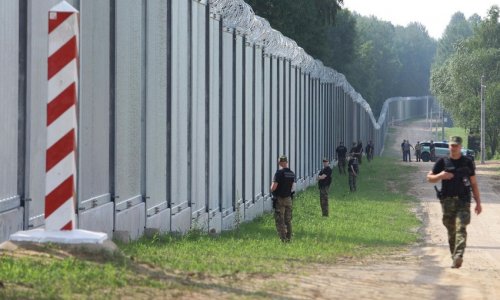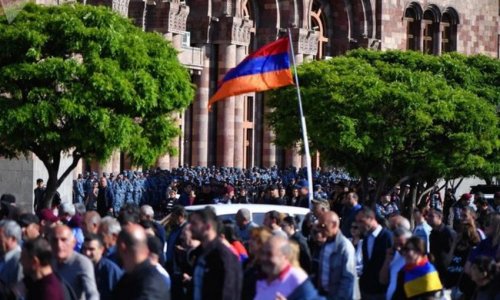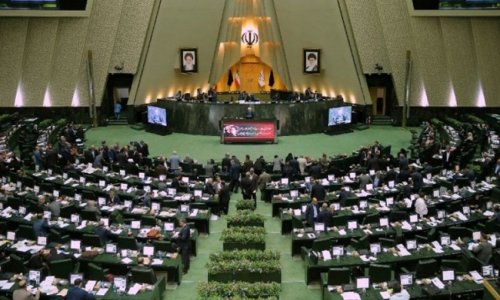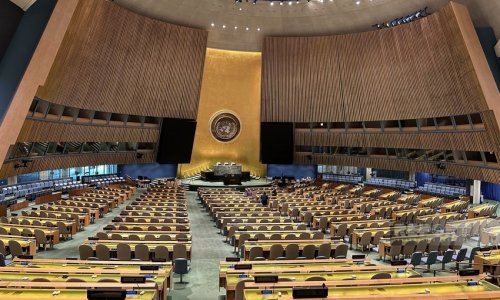In the 14 years since the 9/11 attacks, the face of terrorism has changed out of recognition. To many experts, the threat of Islamist terror is in some ways greater and in some ways diminished. It is geographically more diverse and organizationally more divided, and leverages social media and the internet in a way impossible in 2001.
In the West, Islamist terrorism is often more inspired than organized and directed. Its menace is also more fluid and unpredictable than it was on that bright autumn morning in 2001, but the tools to combat it are also more plentiful, from ever more sophisticated and accurate drones to financial intelligence and algorithms for chewing terabytes of data in the pursuit of suspicious communications.
The likelihood of an attack on the scale of 9/11 has receded. but the probability of more frequent though less devastating attacks has increased.
As if on cue, al Qaeda has just released a 45-minute lecture by its leader Ayman al-Zawahiri that illustrates just how much has changed. Fourteen years ago, al Qaeda was the undisputed heavyweight among jihadist groups, even more so after the 9/11 attacks. Today al-Zawahiri, who succeeded Osama bin Laden in 2011, is struggling to fend off the new pretender, the Islamic State in Iraq and Syria (ISIS).
In his latest message, he launches a broadside against ISIS and its leader, Abu Bakr al-Baghdadi. "We do not acknowledge this Caliphate, and we do not see it as Caliphate on the prophetic method; instead, it is an emirate of taking over without consultation," complains al-Zawahiri.
Al Qaeda has always seen its campaign as a generations-long struggle toward the glorious day when a Caliphate could be declared -- based on Islamic prophecies. Then -- in 2010 and 2011 -- al-Baghdadi rebuilt ISIS from the ashes of al Qaeda in Iraq, extended its field of operations to Syria (2012), and declared himself the Caliph of all Muslims (2014.)
And so battle is joined between two heavyweights of the jihadist movement in a way unimaginable 14 years ago. Both have their MVPs.
Al Qaeda has the brilliant bomb-maker in Yemen, Ibrahim al Asiri, and a commander in Afghanistan called Farouq al Qahtani who is regarded as smart and charismatic. ISIS has a whole raft of potential contenders should the unthinkable happen to al Baghdadi.
It would seem that two jihadist groups battling each other would be good news, and al-Zawahiri makes no attempt to camouflage his loathing for al-Baghdadi in his latest speech. But right at the end of it, he says this: "Despite these grave mistakes, were I in Iraq or in Sham [Syria] I would cooperate with them [ISIS] in fighting the Crusaders, the secularists, the Nusayris, and the Safavids, despite my not acknowledging the legitimacy of their State, not to mention their Caliphate, because the matter is bigger than me and their claim of establishing a Caliphate."
An olive branch? An attempt to win over rank and file ISIS members? Muddled thinking? No wonder intelligence professionals find the current landscape more difficult to analyze than that of a decade ago.
Controlling territory
Similarly unimaginable 14 years ago is that a jihadist group -- a "nonstate actor" as the academics say -- could control a huge amount of territory. Al Qaeda was the guest of the Taliban in Afghanistan, and after 9/11 was dispersed to mountain camps in Pakistan. Al-Shabaab, for a while, controlled parts of central and southern Somalia; al Qaeda in the Islamic Maghreb briefly held some towns in Mali.
But these groups never had the trappings of a "state" in the way ISIS has Sharia courts, basic social services and now even a currency. And any form of safe haven allows for greater and more ambitious planning.
Nick Rasmussen, the director of the U.S. National Counterterrorism Center, says "access to resources, both personnel and monetary resources; control of territory, which allows for the creation of a safe haven -- those are the ingredients that we traditionally look at as being critical to the development of an external operations capability."
Interviewed in the Combating Terrorism Center's latest edition of the Sentinel, Rasmussen says there is a "watching brief" on whether ISIS is planning to open a new front in Europe and the United States. But as the U.S. military presence in Afghanistan winds down, he says that the NCTC is also trying to assess "what level of risk we may face over time that al Qaeda may regenerate, find renewed safe haven, or be able to restore lost capability."
Geographical metastasis
On 9/11, al Qaeda had its camps in Afghanistan; there was a jihadist presence in Algeria and the Caucasus and some budding militancy in the Arabian Peninsula. Now jihadist groups from Indonesia west to the African shores of the Atlantic declare their allegiance to either al Qaeda or ISIS.
Former CIA Acting Director Mike Morell says that al Qaeda's "great victory has been the spread of its ideology across a large geographic area" from northern Nigeria across Africa and into Yemen" as well as to Iraq and Syria.
Writing in the latest edition of the Combating Terrorism Center's Sentinel, Morell says that "all told, some 20 countries now have terrorist groups within their borders espousing the jihadist ideology."
And ISIS has created "provinces" beyond Syria and Iraq at warp speed.
There are countless more "no-go zones" in the world than there were on 9/11:
-- Britain tells its holidaymakers to avoid Tunisia.
-- Parts of Kenya and Egypt are off-limits, as is almost all of Libya.
-- Boko Haram has turned much of northern Nigeria into a battlefield (as well as some areas of neighboring states.)
-- Yemen was never the easiest place to navigate but has imploded in the past four years, becoming yet another theater in which al Qaeda and ISIS compete to kill the most Shiites.
And in Syria, a regime once regarded as the most unshakeable in the Middle East, has lost control of much of its territory, with millions of its citizens displaced.
Rasmussen says "the array of extremist terrorist actors around the globe is broader, wider and deeper than it has been at any time since 9/11."
"It's fair to say that we face more threats, coming at us from more places, involving more individuals than we have at any time since 9/11," he says.
(CNN)
www.ann.az
Follow us !

